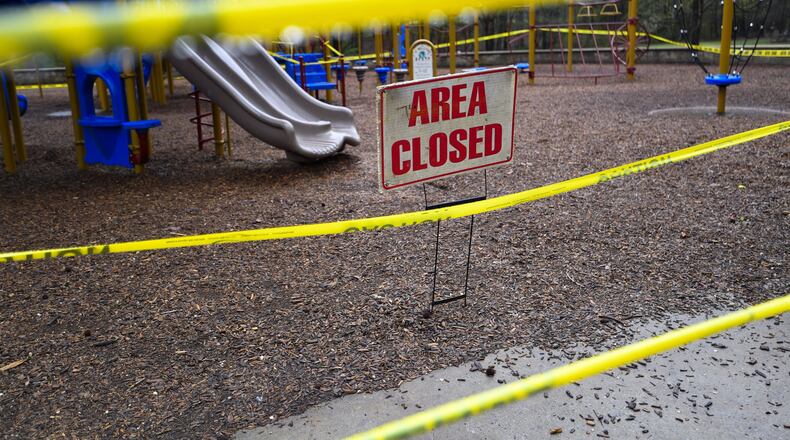Gwinnett County and its cities are finally on the same page when it comes to responding to the coronavirus pandemic.
As of noon Wednesday — and until April 6 — local leaders have ordered large gathering places, like bowling alleys, gyms and theaters, to close. Restaurants and other dining facilities, both indoors and outdoors, must also close. They can still be open for takeout and delivery service.
Until Wednesday, cities and the county had been making their own rules for what could stay open and what must close. The Wednesday order brings consistency across the county to rules that are meant to slow the spread of COVID-19.
As part of the order, hospital cafeterias and nursing home and other similar dining facilities can stay open. If a business stays open, the county has mandated that employees should stay six feet away from others and restrict in-person contact.
The county also authorized enforcement of the order, including additional resources and people.
The county’s move goes further than Gov. Brian Kemp’s actions.
In a statement, Gwinnett Commission Chairman Charlotte Nash said she is considering additional restrictions.
“To the general public, I urge you to stay at home other than for absolutely essential purposes,” she said.
Gwinnett’s 16 cities have all adopted the same rules, as well. Kelly Kelkenberg, president of the Gwinnett Municipal Association, said in a statement that while every city is unique, they are “are united in the effort to assure Gwinnett residents of consistency in how we are approaching social distancing, businesses, law enforcement, emergency services and continued delivery of essential services during this critical time.”
Nash said local leaders “all recognize that working together is more important than ever.”
“The consistency achieved through our united action is significant for the good of all Gwinnett,” she said.
Lawrenceville Mayor David Still, one of the local leaders who echoed the county’s actions, said in a statement that the action was an extension of what many businesses were already doing.
The order includes the closure of arcades and live performance venues; requires that restaurants, breweries and other establishments stop offer seating; and closes playgrounds. It allows churches and other food assistance programs to provide services and shelter as long as they can maintain social distance.
About the Author
Keep Reading
The Latest
Featured



